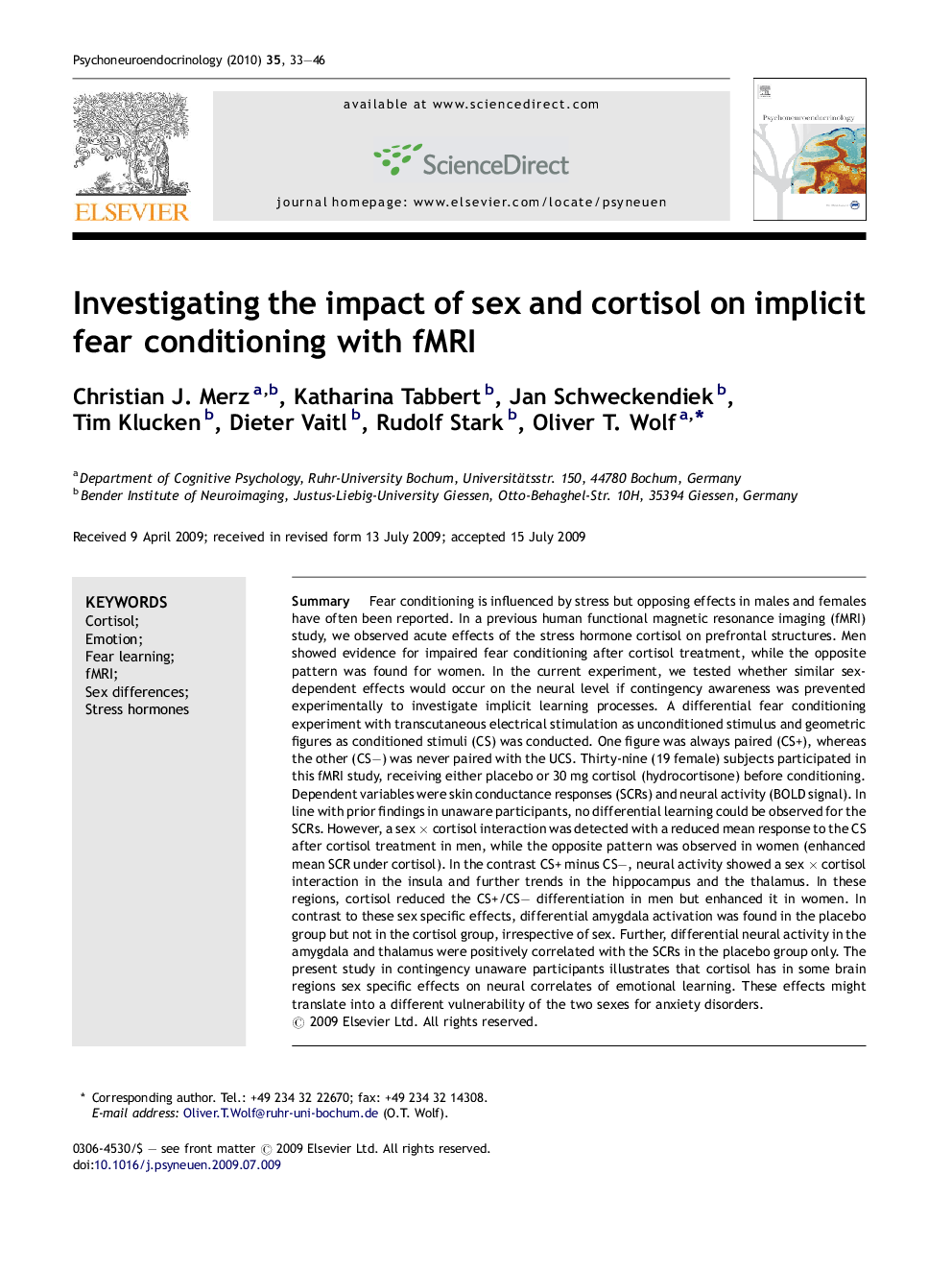| کد مقاله | کد نشریه | سال انتشار | مقاله انگلیسی | نسخه تمام متن |
|---|---|---|---|---|
| 336072 | 547083 | 2010 | 14 صفحه PDF | دانلود رایگان |

SummaryFear conditioning is influenced by stress but opposing effects in males and females have often been reported. In a previous human functional magnetic resonance imaging (fMRI) study, we observed acute effects of the stress hormone cortisol on prefrontal structures. Men showed evidence for impaired fear conditioning after cortisol treatment, while the opposite pattern was found for women. In the current experiment, we tested whether similar sex-dependent effects would occur on the neural level if contingency awareness was prevented experimentally to investigate implicit learning processes. A differential fear conditioning experiment with transcutaneous electrical stimulation as unconditioned stimulus and geometric figures as conditioned stimuli (CS) was conducted. One figure was always paired (CS+), whereas the other (CS−) was never paired with the UCS. Thirty-nine (19 female) subjects participated in this fMRI study, receiving either placebo or 30 mg cortisol (hydrocortisone) before conditioning. Dependent variables were skin conductance responses (SCRs) and neural activity (BOLD signal). In line with prior findings in unaware participants, no differential learning could be observed for the SCRs. However, a sex × cortisol interaction was detected with a reduced mean response to the CS after cortisol treatment in men, while the opposite pattern was observed in women (enhanced mean SCR under cortisol). In the contrast CS+ minus CS−, neural activity showed a sex × cortisol interaction in the insula and further trends in the hippocampus and the thalamus. In these regions, cortisol reduced the CS+/CS− differentiation in men but enhanced it in women. In contrast to these sex specific effects, differential amygdala activation was found in the placebo group but not in the cortisol group, irrespective of sex. Further, differential neural activity in the amygdala and thalamus were positively correlated with the SCRs in the placebo group only. The present study in contingency unaware participants illustrates that cortisol has in some brain regions sex specific effects on neural correlates of emotional learning. These effects might translate into a different vulnerability of the two sexes for anxiety disorders.
Journal: Psychoneuroendocrinology - Volume 35, Issue 1, January 2010, Pages 33–46